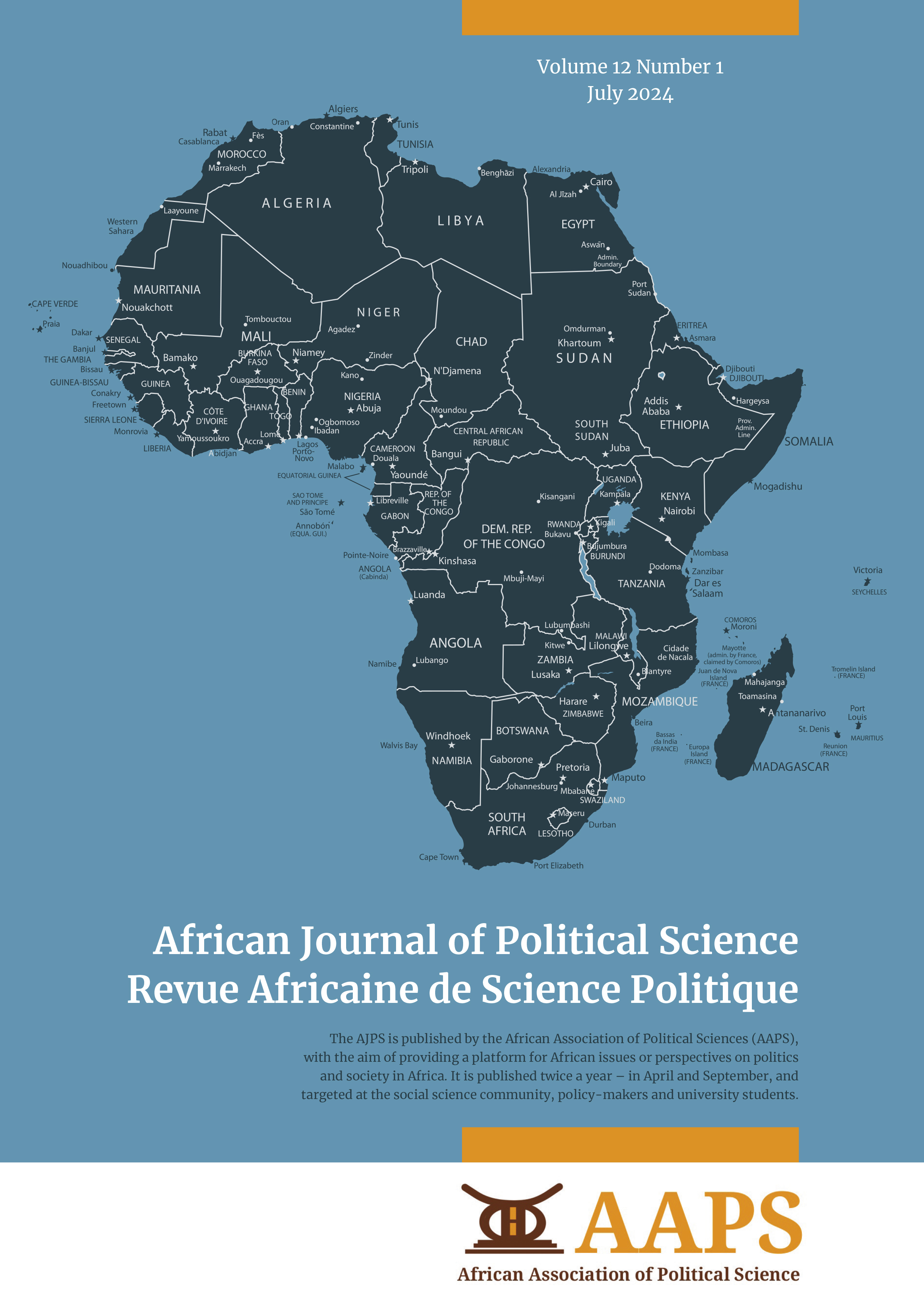Effects of Ethiopia’s landlocked status on ties with its neighbours
Main Article Content
Keywords
Economic, Political and Security Implications, Landlockedness, Post-1991 period, Ethiopia
Abstract
This study looks at Ethiopia’s landlocked status and the economic, security, and political implications for the country’s relations with its neighbors. Furthermore, it addresses potential threats arising from the implications as well as potential solutions. Ethiopia lost its sea outlet after 1991. As a result, it is incurring significant costs to cover port fees and other related costs. Ethiopia’s economy is suffering as a result of the high cost. A literature review is used as a source of data to investigate the implications of Ethiopia’s landlocked status in relation to its ties with neighboring countries. Books, journals, internet materials, and media outlets were consulted in this regard. Furthermore, a key informant interview was conducted to collect up-to-date data and information that supports the findings of the literature review. The security and political aspects are discussed in light of East Africa’s security, neighboring countries’ interests, and the presence of foreign powers in the region. This study underlines that Ethiopia’s landlocked status has implications for its security and political affairs. Ethiopia’s landlocked status is primarily due to the country’s political leadership. Ethiopia can deal with the consequences of its landlocked status by establishing a stable political system and developing a compatible economic policy. In this regard, Ethiopia should learn from other countries how to overcome the negative effects of landlockedness, as there are developed landlocked countries.
Article Metrics Graph
References
Ariekot, C. (2016). Trade facilitation, landlocked countries. Lund, Sweden: Lund University School of Economics and Management.
Ayoob, M. (1978). Horn of Africa regional conflict and super power involvement. Canberra, Australia: The Australian National University.
Cannon, B.J. (2017). Ethiopia, Berbera port and the shifting balance of power in the horn of Africa. Rising powers quarterly, 2 (4), 1-24.
Carmody, L. (2018). Ethiopia and Eritrea: A new breakthrough in an old rivalry. Nedlands, Australia: Future Directions International Research Institute.
Chung, C. (2014). Development Economics. Norwich Economic Papers, 10, 1-14.
Engle, R.F., Hendry, D.F. and Richard, J.F. (1983) Exogeneity. Econometrica, 51, 277-304: Cambridge University Press. https://doi.org/10.2307/1911990
Getachew, B. (2013). Landlockedness as an Impediment to Economic Development in Ethiopia: A Framework for a Durable Solution. (https://www.researchgate.net). (Accessed December 6, 2018.
Getachew, B. (2015, September). Port of Assab as a Factor for Economic Development and Regional Conflict. Retrieved on December 6, 2018, from https://www.researchgate.net/publication/228770950_Port_of_Assab_as_a_Factor_for_ Economic_Development_and_Regional_Conflict.
Jager, D. (2004). Exogenous and endogenous growth. Pretoria, South Africa: University of Pretoria.
Klotz, A., & Prakash, D. (2008). Qualitative methods in international relations. Hampshire, USA: Macmillan. https://doi.org/10.1057/9780230584129
Mahdi, S. (2016). Security and foreign policy of landlocked countries. Boston, USA: University of Massachusetts.
Maasho, A. (2018, June 3). Landlocked Ethiopia plans new navy as part of military reforms. Retrieved on December 6, 2018, from: https://www.reuters.com/article/us-ethiopia-military/landlocked-ethiopia-plans-new-navy-as-part-of-militaryreforms.
Meala, T. (2011). The causes of return to conflict and the geopolitical dynamics in the horn of Africa: The Eritrean - Ethiopian border Conflict. London, England: University of London.
Mehari, M. T. (2019, July 1). Aljazeera Impact. Retrieved on July 6, 2019, from https://www.aljazeera.com/indepth/opinion/cold-war-afric.
Olewe, D. (2018, June 14). Why landlocked Ethiopia wants to launch a navy? Retrieved on December 6, 2018, from: https://www.bbc.com/news/world-africa.
Rossiter, A. (2016). Rising Powers in Global Governance: Ethiopia, Berbera Port and the Shifting Balance of Power in the Horn of Africa. Marmara, Turkey: Marmara University.
Toye, J. (2008). Prospects for a theory of institutions and development. Washington, D.C., USA: The World Bank.
Wossen, A., & Shimelis, B. (2019). Financing the Grand Ethiopian Renaissance Dam. Retrieved on February 19, 2019, from https://www.researchgate.net/publication/326656445 Financing the Grand Ethiopian Renaissance Dam//.
Yacob, H. (2010). Assab Yeman Nat? Ethiopia’s Quest for Sea Outlet (First Edition). Addis Ababa: Commercial Printing Press.






